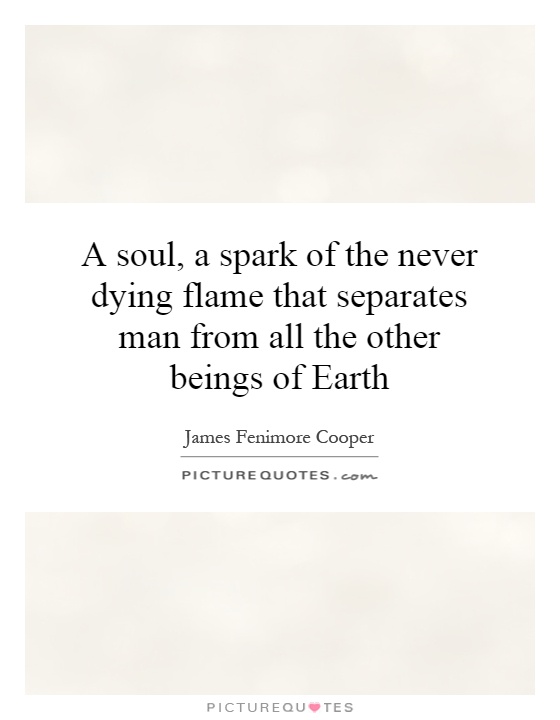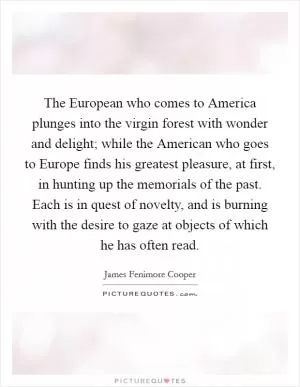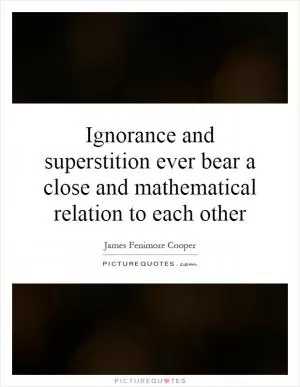A soul, a spark of the never dying flame that separates man from all the other beings of Earth

A soul, a spark of the never dying flame that separates man from all the other beings of Earth
James Fenimore Cooper, a renowned American writer known for his frontier novels, often explored the theme of the human soul and its connection to nature in his works. In many of his novels, Cooper delves into the idea of the soul as a spark of the never-dying flame that separates man from all other beings on Earth.Cooper's characters often grapple with their inner selves and the moral dilemmas they face in the untamed wilderness of the American frontier. In his most famous work, "The Last of the Mohicans," the protagonist, Hawkeye, embodies this idea of the soul as a spark of the never-dying flame. Hawkeye is a white man raised by Native Americans, and he straddles the line between two worlds, embodying the best qualities of both cultures. His soul is a beacon of light in the darkness of the wilderness, guiding him and his companions through the dangers they face.
In "The Deerslayer," another of Cooper's frontier novels, the protagonist, Natty Bumppo, also grapples with the idea of the soul as a spark of the never-dying flame. Natty is a man of integrity and honor, guided by his moral compass even in the face of great adversity. His soul is pure and untainted by the corruption of the world around him, making him a true hero in the eyes of his companions.
Cooper's exploration of the human soul in his novels reflects his belief in the inherent goodness of mankind and the power of the individual to overcome the challenges they face. The soul, as a spark of the never-dying flame, represents the eternal essence of humanity that transcends time and space. It is this spark that separates man from all other beings on Earth, giving them the capacity for love, compassion, and selflessness.












 Friendship Quotes
Friendship Quotes Love Quotes
Love Quotes Life Quotes
Life Quotes Funny Quotes
Funny Quotes Motivational Quotes
Motivational Quotes Inspirational Quotes
Inspirational Quotes